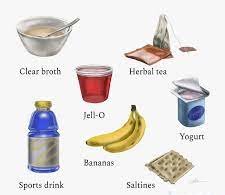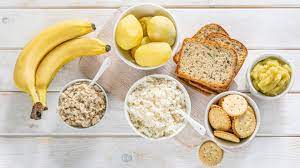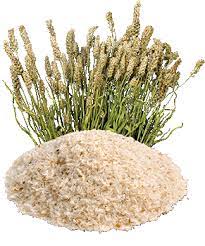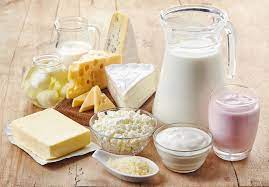Diarrhea Treatment: Effective Solutions to Relieve Symptoms and Restore Health
Diarrhea is a common condition that affects people of all ages and can be caused by a variety of things. It is characterized by frequent, watery bowel movements, abdominal cramps, nausea, bloating and urgency to defecate. It is usually the result of an infection or irritation of the digestive tract from eating contaminated food or drinks, certain medications, illness or stress. In severe cases it can lead to dehydration and even death due to electrolyte imbalances in the body. It is therefore essential for individuals suffering from frequent bouts of diarrhea to seek medical attention in order to rule out any other potential cause. Please keep reading for details on the following topics:
Signs and symptoms accompanying diarrhea
When to seek urgent medical care
Causes of diarrhea
Complication of diarrhea
Ways to prevent diarrhea
How diarrhea is diagnosed
How diarrhea treated
Natural remedies
Foods to avoid during diarrhea

SIGNS AND SYMPTOMS ACCOMPANYING DIARRHEA
- Abdominal cramps, which can range from mild to severe.
- Nausea and vomiting
- Dehydration, which can cause symptoms such as dry mouth, thirst, dizziness, fatigue, and dark urine.
- Fever: In some cases, diarrhea may be accompanied by a fever, which is usually a sign of an infection.
- Bloating and gas due to the presence of excess fluid and gas in the intestines.
- Fatigue and weakness due to the loss of fluids and electrolytes from the body.
- Rectal pain: irritation and inflammation of the rectum, which may lead to pain and discomfort.
- Blood and mucus in the stool
- Loss of appetite and a decreased desire to eat, which can worsen the dehydration and other symptoms.
CAUSES OF DIARRHEA
- Viral infections: Viruses, such as the norovirus, rotavirus, and hepatitis A
- Bacterial infections: Bacteria, such as E. coli, Salmonella, and Campylobacter, through contaminated food or water.
- Parasitic infections: Parasites, such as Giardia and Cryptosporidium, through contaminated food or water, or through contact with infected feces.
- Inability to digest lactose (milk), Food intolerance or allergies: Some people may experience diarrhea after consuming certain foods, such as lactose or gluten.
- Medications: Certain medications, such as antibiotics, chemotherapy drugs, and laxatives.
- Digestive disorders: Chronic digestive disorders, such as inflammatory bowel disease (IBD), celiac disease, and irritable bowel syndrome (IBS)
- Emotional stress: Stress and anxiety can affect the digestive system
- Surgery
- Radiation therapy can irritate the digestive system
- Drinking contaminated water
COMPLICATIONS OF DIARRHEA
- Dehydration: a significant loss of fluids and electrolytes from the body, which can lead to dehydration. Dehydration can be particularly dangerous for young children, elderly people, and those with weakened immune systems.
- Malnutrition: Chronic diarrhea can lead to malnutrition if the body is unable to absorb nutrients properly.
- Electrolyte imbalances which can cause weakness, muscle cramps, and other symptoms.
- Kidney failure: Severe dehydration can lead to kidney failure if the kidneys are unable to function properly.
- Blood infections
- Irritable bowel syndrome (IBS), which is characterized by recurrent abdominal pain and altered bowel movements.
- Intestinal damage: Chronic diarrhea can cause damage to the intestinal lining, leading to malabsorption of nutrients and other digestive problems.
WAYS TO PREVENT DIARRHEA
- Practice good hygiene: Wash your hands frequently with soap and water, especially after using the bathroom, changing diapers, and before eating or preparing food.
- Avoid contaminated food and water: Drink only bottled or boiled water when traveling to areas with poor sanitation, and avoid raw or undercooked foods, especially meats, fish, and eggs.
- Keep food safe: Store food properly, cook food thoroughly, and avoid cross-contamination by using separate cutting boards and utensils for raw and cooked foods. Ensure that foods are stored properly.
- Be cautious with medications: Only take antibiotics when prescribed by a healthcare professional and be aware of any potential side effects.
- Vaccinations: Get vaccinated against infectious diseases that can cause diarrhea, such as rotavirus, hepatitis A, and typhoid fever.
- Avoid foods that trigger symptoms: If you have a food intolerance or allergy, avoid foods that trigger your symptoms, such as lactose or gluten.
- Manage stress: Stress and anxiety can affect the digestive system and lead to diarrhea, so finding ways to manage stress, such as through exercise or meditation, may be helpful.
- Stay hydrated: Drink plenty of fluids, especially water, to prevent dehydration.
- Maintain a healthy lifestyle: Eating a balanced diet, getting regular exercise, and getting enough sleep can help support overall digestive health and prevent diarrhea.
- Practice sanitary food practices such as:
- Eating well cooked foods
- Washing fruits and vegetables prior to eating
- Avoiding raw and undercooked foods
- Avoiding tap water
- Boiling water prior to ingesting, or make use of bottled water
HOW DIARRHEA IS DIAGNOSED
The diagnosis involves a medical evaluation to determine the underlying cause of the symptoms. Here are some of the steps that a healthcare provider may take:
- Medical history: The healthcare provider will ask about the patient’s medical history, including any recent travel, medication use, or exposure to infectious agents.
- Physical exam: The healthcare provider will conduct a physical exam to check for signs of dehydration, fever, or abdominal pain.
- Stool analysis: A stool sample may be collected and analyzed to check for signs of infection, inflammation, or other abnormalities.
- Blood tests: Blood tests may be conducted to check for signs of infection or inflammation.
- Imaging tests: In some cases, imaging tests such as X-rays, CT scans, or ultrasound may be ordered to help diagnose the underlying cause of diarrhea.
- Endoscopy: In some cases, a healthcare provider may perform an endoscopy, which involves inserting a small camera into the digestive tract to examine the lining of the gut and collect tissue samples for analysis.
Based on the results of these tests, the healthcare provider may be able to determine the underlying cause of the diarrhea and develop an appropriate treatment plan.
HOW DIARRHEA IS TREATED

Natural remedies
There are several natural remedies that may help alleviate the symptoms. It’s important to note that natural remedies should not replace medical treatment for severe or prolonged diarrhea or any underlying medical conditions. Here are some natural remedies that may be helpful:
Stay hydrated: Drinking water, clear broths, or sports drinks can help replace fluids and electrolytes lost during diarrhea.
Fluids are essential to help replace the fluids lost in diarrhea and prevent dehydration. It’s important to avoid beverages that can worsen symptoms, such as alcohol, caffeine, and sugary drinks. It’s also important to drink fluids frequently throughout the day to stay hydrated and prevent dehydration. Some of the best fluids to drink when experiencing diarrhea include:
- Water: Drinking plenty of plain water is the simplest and most effective way to stay hydrated when experiencing diarrhea.
- Oral rehydration solutions: These are specially formulated solutions containing a precise balance of salts, glucose, and water that can help replace fluids and electrolytes lost during diarrhea. They are available over the counter and are recommended for people with severe or prolonged diarrhea.
- Sports drinks: Sports drinks can help replace electrolytes and provide energy during diarrhea.
- Clear broths: Clear broths such as chicken or beef broth can help replace fluids and provide some nutrients lost during diarrhea.
- Coconut water: Coconut water contains electrolytes and can help replace fluids lost during diarrhea.
-
Herbal teas: Drinking herbal teas such as ginger, peppermint, or chamomile may help soothe the digestive system and reduce diarrhea symptoms while providing hydration.
Eat a bland diet:

Eating foods such as bananas, rice, applesauce, and toast can help soothe the digestive system and reduce symptoms. Bland foods are low in fiber, fat, and spices, and are unlikely to irritate the gut. Some examples of bland foods include:
- Bananas: Bananas are easy to digest and contain potassium, which can help replace electrolytes lost during diarrhea.
- Rice: Plain, cooked rice is easy to digest and can help bulk up stools and reduce diarrhea.
- Applesauce: Applesauce is a good source of soluble fiber, which can help firm up stools and reduce diarrhea.
- Toast: Plain, white bread toast is easy to digest and may help reduce diarrhea symptoms.
- Boiled or baked potatoes: Boiled or baked potatoes are easy to digest and contain potassium, which can help replace electrolytes lost during diarrhea.
- Crackers: Saltine crackers or similar plain crackers are easy to digest and may help reduce nausea and vomiting associated with diarrhea.
Probiotics:

Some good sources of probiotics include yogurt, kefir, and kimchi, contain beneficial bacteria that can help restore the natural balance of the gut microbiome and alleviate diarrhea symptoms. Probiotic supplements are also available over the counter. It’s important to consult with a healthcare provider before starting any new probiotic supplements, especially if you have a weakened immune system or are taking antibiotics or immunosuppressive drugs.
Probiotics may be helpful in managing diarrhea as they contain beneficial bacteria that can help restore the natural balance of the gut microbiome. The gut microbiome plays a crucial role in digestion and immunity, and an imbalance in the gut microbiome can contribute to digestive issues such as diarrhea. Here are some ways probiotics may be helpful in managing diarrhea:
- Antibiotic-associated diarrhea: Taking antibiotics can disrupt the gut microbiome and cause diarrhea. Probiotics may help restore the natural balance of the gut microbiome.
- Infectious diarrhea: Probiotics may be helpful in managing diarrhea caused by infectious agents such as viruses or bacteria. They may help reduce the severity and duration and improve overall gut health.
-
Irritable bowel syndrome (IBS)-related diarrhea: They may help regulate bowel movements and reduce inflammation in the gut.
Herbal teas:

Drinking herbal teas such as ginger, peppermint, or chamomile may help soothe the digestive system and reduce diarrhea symptoms.
Herbal teas may be helpful in managing diarrhea as they can help soothe the digestive system and provide hydration. Here are some herbal teas that may be helpful in managing diarrhea:
- Peppermint tea: Peppermint tea may help reduce abdominal pain and discomfort associated with diarrhea. It has antispasmodic properties that can help relax the muscles in the digestive tract.
- Ginger tea: Ginger tea may help reduce inflammation in the gut and improve digestion. It also has antibacterial and antiviral properties that may help fight off the underlying cause of diarrhea.
- Chamomile tea: Chamomile tea may help reduce inflammation and soothe the digestive system. It has anti-inflammatory properties that may help reduce abdominal pain and cramping.
- Fennel tea: Fennel tea may help reduce gas and bloating associated with diarrhea. It has antispasmodic properties that can help relax the muscles in the digestive tract.
It’s important to note that some herbal teas may have laxative effects, which can worsen diarrhea in some cases. It’s also important to ensure that the herbs used in the tea are safe and not contraindicated for any existing health conditions or medications. It’s always best to consult with a healthcare provider before using herbal teas or any natural remedies.
Psyllium husk:

Psyllium husk is a type of soluble fiber that is commonly used as a natural remedy for constipation. It works by absorbing excess water in the gut, which can help to bulk up the stool and reduce diarrhea. Additionally, psyllium husk can help to soothe the digestive system and reduce inflammation in the gut.
It’s important to note that psyllium husk may not be appropriate for everyone. In some cases, it can worsen diarrhea, particularly if caused by an infection or inflammation in the gut. It’s also important to drink plenty of water when using psyllium husk, as it can absorb large amounts of water and cause dehydration if not taken with enough fluids. It’s always best to consult with a healthcare provider before using psyllium husk or any natural remedies.
Apple cider vinegar:

Drinking diluted apple cider vinegar may help restore the natural pH balance of the gut. While some people believe that apple cider vinegar (ACV) can help improve digestive health and relieve diarrhea, there is limited scientific evidence to support this claim. In fact, ACV may actually worsen diarrhea in some cases. ACV is acidic and may irritate the digestive system, particularly if consumed in large amounts or on an empty stomach. Additionally, ACV may have a laxative effect and can worsen diarrhea in some people.
Honey:

Honey has natural antibacterial properties and can be beneficial in managing diarrhea caused by bacterial infections, such as E. coli or Salmonella. It is believed that the antibacterial properties of honey may help to kill off harmful bacteria in the gut, which can help to reduce diarrhea symptoms. In addition, honey may also help to soothe the digestive system and reduce inflammation in the gut. However, it’s important to note that honey is high in sugar and can have a laxative effect in some people. If you have diarrhea, it’s important to consume honey in moderation and to make sure that you’re also drinking plenty of fluids to prevent dehydration.
It’s also important to note that honey should not be given to infants under one year of age, as it can increase the risk of botulism, a rare but serious illness caused by a bacterial toxin. If you have diarrhea and are considering using honey as a natural remedy, it’s important to speak with a healthcare provider first. They can provide guidance on whether honey is safe and appropriate for you, and recommend other treatments or remedies as needed.
FOODS TO AVOID DURING AN EPISODE OF DIARRHEA
During an episode of diarrhea, it’s important to avoid certain foods that can worsen symptoms and irritate the digestive system. Here are some foods to avoid:
Black tea:

Black tea contains caffeine, which is a natural stimulant that can have a laxative effect in some people. As a result, consuming large amounts of black tea may worsen diarrhea in some cases. However, black tea also contains tannins, which are compounds that can help to reduce inflammation in the gut and may help to alleviate symptoms. Some people also find that the warmth and comfort of drinking a cup of tea can help to soothe their digestive system and reduce discomfort. If you have diarrhea and are considering drinking black tea, it’s important to start with a small amount and see how your body reacts. If you find that black tea worsens your symptoms, it’s best to avoid it or to limit your consumption.
High-fat foods:

High-fat foods: Foods that are high in fat, such as greasy and fried foods, fatty meats, and creamy sauces, can worsen diarrhea and may be harder to digest.
Spicy foods: Spicy foods can irritate the digestive system and make symptoms worse.
Dairy products: Dairy products, such as milk, cheese, and ice cream, can be difficult to digest and may worsen diarrhea symptoms, particularly if you have lactose intolerance.
Caffeine: Caffeine can stimulate the digestive system and worsen symptoms. This includes coffee, tea, and soda.
Sugary foods and drinks: Sugary foods and drinks, such as candy, soda, and fruit juice, can worsen diarrhea and contribute to dehydration.
Raw fruits and vegetables: Raw fruits and vegetables can be hard to digest and may worsen diarrhea symptoms. It’s best to stick to cooked or canned fruits and vegetables instead.
Alcohol: Alcohol can irritate the digestive system and worsen diarrhea symptoms. It’s best to avoid alcohol until diarrhea symptoms have resolved.
Chocolate
Beans
Fiber rich foods
Sports drinks that are made for adults
Wheat products
WHEN TO SEEK URGENT MEDICAL CARE
It is important to know when to seek urgent medical care, as delaying appropriate treatment can lead to further health complications. If you experience any of the following symptoms, you should seek medical help immediately. If you have any doubts about whether you should seek medical care, it is always better to err on the side of caution and consult with your doctor.
Diarrhea continuing past two days
Signs of dehydration
Severe pain to the abdomen or rectum
Bloody or black stools
Temperature above 102 F (39 C)
Disclaimer: The information provided in this content is for general informational purposes only. It is not intended as medical or healthcare advice, diagnosis, or treatment. Always seek the advice of a qualified healthcare professional with any questions you may have regarding a medical condition or healthcare decisions.

